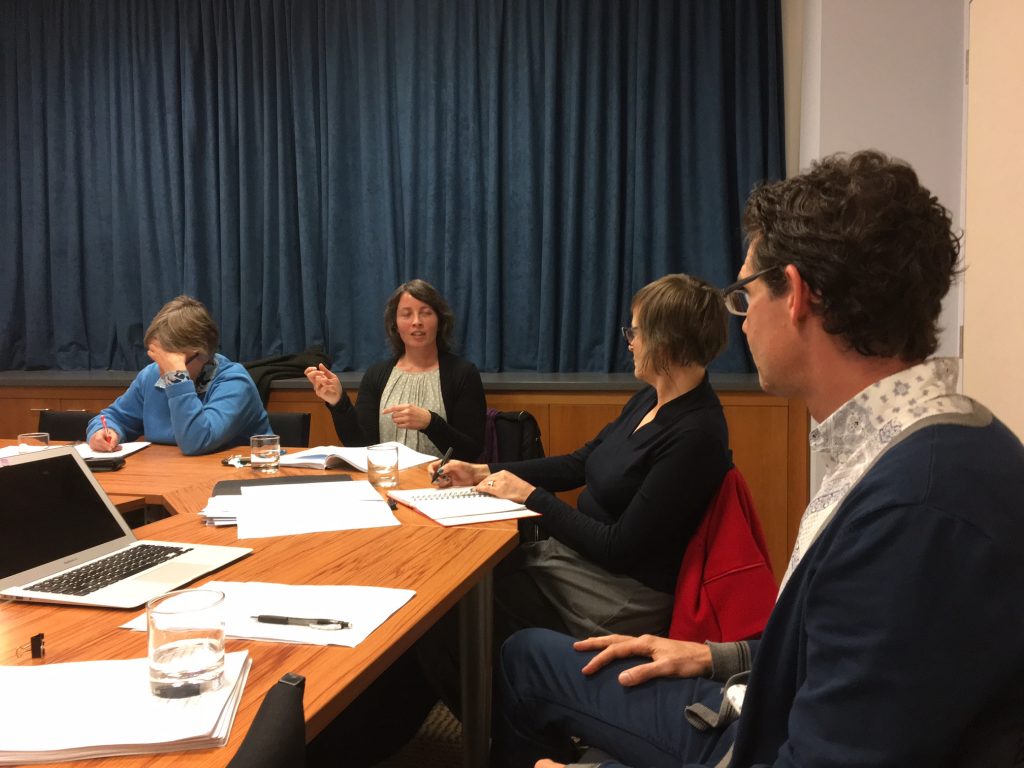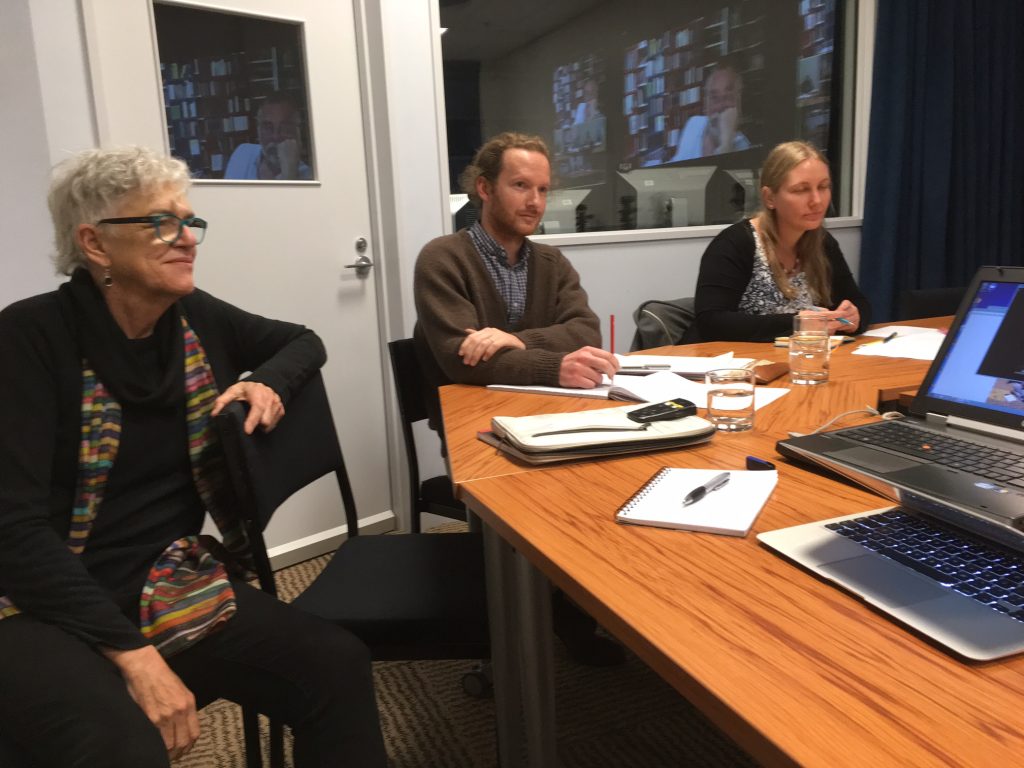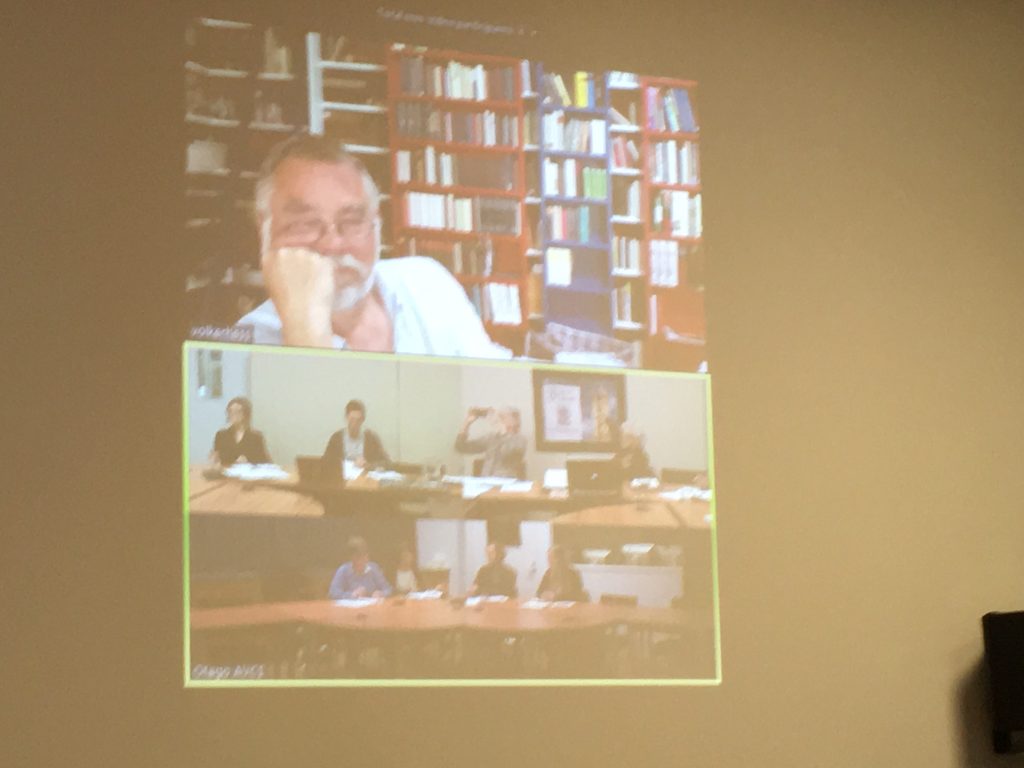Museums, Digital Collections and Indigenous Futures Talks
All are welcome to attend an open seminar on Thursday 22 February featuring two scholars who will speak about their current projects that aim to reconnect indigenous communities with objects and archives, making them available for future use and reinterpretation.
Location: Moot Court, 10th Floor, Richardson Building, starting at 10am
Associate Professor Aaron Glass (Bard Graduate Center, New York) will discuss his involvement in producing a new critical edition of anthropologist Franz Boas’s 1897 landmark book, The Social Organization and Secret Societies of the Kwakiutl Indians, which uses digital media to link museums, archives and communities while recuperating ethnographic records for current and future use. Not only did the volume make draw upon existing museum collections from around the world, Boas and his indigenous collaborator, George Hunt, left a vast archive of unpublished materials relevant to the creation and afterlife of the 1897 text, including hundreds of pages of Hunt’s corrections and amendments. An international and collaborative endeavour to create a new annotated critical edition of the book – both in print and in digital formats – unites published and unpublished materials with current Kwakwaka’wakw knowledge. This presentation discusses that project and presents an interactive prototype for the digital edition that re-embeds ethnographic knowledge within Indigenous epistemological frameworks and hereditary protocols for access.
Associate Professor Conal McCarthy (Victoria University of Wellington) will outline two current trends in museum research in Australia and Aotearoa: one looking back to the history of collections, ethnology and colonisation, and the other looking forward to digital technology, co-curating and an emerging indigenous Museology. It will briefly introduce various projects which aim to reconnect tribal descendants to ancestral heritage through digital tools which enable the reassembly of scattered records, material culture and images. It will introduce the Marsden-funed project ‘Te Ao Hou: Imagining Worlds in New Zealand, 1900-1950’ led by Anne Salmond at Auckland University, which follows Māori leaders Apirana Ngata and Peter Buck through their involvement in the Dominion Museum ethnological expeditions, the Polynesian Society and the Board of Māori Ethnological Research. It considers the mobilising of relational concepts such as whakaapa/kinship, which were applied in Buck and Ngata’s ‘practical anthropology’, and the lessons of their experiments for both Māori museum practice today and contemporary tribal development generally.
Open Seminar: Museums, Digital Collections and Indigenous Futures
On 22 February the Centre is hosting an open seminar featuring two scholars who will speak about their current projects that aim to reconnect indigenous communities with objects and archives, making them available for future use and reinterpretation.
Location: Moot Court, 10th Floor, Richardson Building
All welcome.
Associate Professor Aaron Glass (Bard Graduate Center, New York) will discuss his involvement in producing a new critical edition of anthropologist Franz Boas’s 1897 landmark book, The Social Organization and Secret Societies of the Kwakiutl Indians, which uses digital media to link museums, archives and communities while recuperating ethnographic records for current and future use. Not only did the volume make draw upon existing museum collections from around the world, Boas and his indigenous collaborator, George Hunt, left a vast archive of unpublished materials relevant to the creation and afterlife of the 1897 text, including hundreds of pages of Hunt’s corrections and amendments. An international and collaborative endeavour to create a new annotated critical edition of the book – both in print and in digital formats – unites published and unpublished materials with current Kwakwaka’wakw knowledge. This presentation discusses that project and presents an interactive prototype for the digital edition that re-embeds ethnographic knowledge within Indigenous epistemological frameworks and hereditary protocols for access.
Associate Professor Conal McCarthy (Victoria University of Wellington) will outline two current trends in museum research in Australia and Aotearoa: one looking back to the history of collections, ethnology and colonisation, and the other looking forward to digital technology, co-curating and an emerging indigenous Museology. It will briefly introduce various projects which aim to reconnect tribal descendants to ancestral heritage through digital tools which enable the reassembly of scattered records, material culture and images. It will introduce the Marsden-funed project ‘Te Ao Hou: Imagining Worlds in New Zealand, 1900-1950’ led by Anne Salmond at Auckland University, which follows Māori leaders Apirana Ngata and Peter Buck through their involvement in the Dominion Museum ethnological expeditions, the Polynesian Society and the Board of Māori Ethnological Research. It considers the mobilising of relational concepts such as whakaapa/kinship, which were applied in Buck and Ngata’s ‘practical anthropology’, and the lessons of their experiments for both Māori museum practice today and contemporary tribal development generally.
Aaron Glass is an Associate Professor at Bard Graduate Center in New York City, and a Research Associate in the Division of Anthropology at the American Museum of Natural History. He specializes in First Nations art, material culture, media, and performance on the Northwest Coast of North America, as well as the history of anthropology and museums. His books include The Totem Pole: An Intercultural History (co-authored with Aldona Jonaitis, 2010), Objects of Exchange: Social and Material Transformation on the Late Nineteenth-Century Northwest Coast (the catalogue for an exhibition he curated at Bard Graduate Center in 2011), and Return to the Land of the Head Hunters: Edward S. Curtis, the Kwakwaka’wakw, and the Making of Modern Cinema (co-edited with Brad Evans, 2014).
Conal McCarthy is Director of the Museum & Heritage Studies programme at Victoria University of Wellington. He has published widely on museum history, theory and practice, including the books Exhibiting Māori (2007), Museums and Maori (2011), and Museum Practice (2015). He co-authored Collecting, ordering, governing: Anthropology, museums and government (Duke University Press, 2017), and co-edited a volume of essays in memory of Jonathan Mane-Wheoki (Victoria University Press). In 2018 he will publish the history of Te Papa (Te Papa Press), Curatopia: Museums and the future of research (co-edited with Philipp Schorch, Manchester University Press) and a book ‘Indigenous Museologies’ in Australia and Aotearoa New Zealand (Routledge). Among his current research projects is the history of museum visitation in Australia and New Zealand, and a Marsden funded project led by Professor Anne Salmond ‘Te Ao Hou: Transforming worlds in New Zealand 1900-1950’.
CFP: Nga Taonga Tuku Iho 2018
The 2018 National Conference of the Archives and Records Association of New Zealand will take place from 25-28 August at Rotorua.
The theme of the conference is Māori archives and records. This theme and kaupapa allows for an exploration of the discovery, preservation, description, record keeping, interconnectedness and meaning of Māori records, archives and taonga. The 2018 conference looks to explore opportunities for researchers, communities and organisations to collaborate in the guardianship of knowledge, facilitate researcher engagement and help safeguard our collective past in perpetuity.
Areas of focus, and possible topics, could include:
- Iwi and community archives
- Conservation and preservation of collections
- Preventing and managing disasters
- Documenting heritage collections and taonga
- Collection descriptions for indigenous designed databases
- Record-keeping standards and authority headings
- Digitising collections
- Cultural sensitivities and archival ethics
- Research into Māori collections and archives
- Displacement of collections and repatriation
- Collecting archives in a post-Treaty environment
- Resourcing and funding challenges
- Ownership and kaitiakitanga
- Te Reo as part of the record
- Distributed collecting across institutions and iwi archives
- Connecting communities through records and archives
Proposals for 20 minute papers are invited. Abstracts of 450-500 words and a short bio should be submitted via email to Tiena Jordan (threejordans@xtra.co.nz) by the 31st March 2018.
Archival Files and Knowledge Production Workshop
The Centre hosted a very successful workshop on May 30 & 31, organised by Barbara Brookes, addressing the creation of archival files, the way individual lives get written into such files, the serendipity (or otherwise) of the survival of such paperwork, how it gets ordered, and how such files might make it possible to create claims on the state. Participants also considered the origins of files in book-keeping work and their ongoing life in the digital realm and asked how different forms of accessibility might alter our engagement with files and what might be lost when the original ordering becomes subservient to digital imperatives, such as the great demand by genealogists.
The writing of history is shaped by its sources. Workshop participants spent two days thinking about how those sources shape narratives within institutions, at the national level, and for the individual. Jane McCabe, from the Department of History and Art History at Otago, linked an institution, a number of countries and personal narratives in her paper which is based on an archive that continues to shape lives in the present. Rosi Crane, an Honorary Research Fellow at Otago Museum and a graduate of the Department of History and Art History at Otago, who has been working on the project for Barbara, attended and presented her thoughts near the end of the workshop.

Rosi Crane takes notes as Jane McCabe discusses her paper while Kate Hunter and James Moran listen attentively.
All workshop participants considered this on-going relationship with archives, how historians use them to create coherent stories and how paper trails both serve to highlight some kinds of knowledge and elide others. The Centre was delighted to welcome to the Otago campus James Dunk from the University of Sydney, James Moran from the University of Prince Edward Island, Sally Swartz from the University of Capetown, Kate Hunter and Rebecca Lenihan (with Charlotte Macdonald there in spirit) from Victoria University of Wellington. and Volker Hess, from the Charité – Universitätsmedizin Berlin, who joined the workshop by zoom for three hours of intense discussion of pre-circulated papers.
Congratulations to Barbara Brookes on putting together a fantastic programme of speakers. We look forward to seeing the publication of these papers in a special journal issue in the near future.
Hocken Lecture
Tony Ballantyne, the incoming PVC Humanities at the University of Otago, departing HoD of History and Art History, and Director of the Centre for Research on Colonial Culture gave the 2015 Hocken Lecture last week. In it, Tony discussed some archive stories that are foundational to his own work, and critiqued claims about archival silences promoted by some postcolonial scholars by pointing to the lively and rich vein of work being produced at the University of Otago, particularly by researchers attached to the Centre. You can read about his lecture in this Otago Bulletin article, which gives a thorough report on its content and maps out Tony’s vision for New Zealand history. Thanks Tony for a wonderful lecture!



